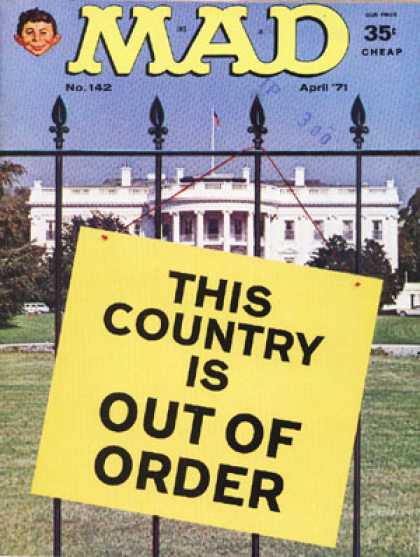|
Word Gems
self-knowledge, authentic living, full humanity, continual awakening
Bible
| The Bible itself draws distinction between the written page and 'God's word in us.' This latter, a personal perception of Divinity, an individualized tutoring, has been accessible by all devout peoples, of all cultures, in all periods of history. The term 'bible' means 'books', a collection of documents, which, at best but not in all cases, serves merely as signpost directing us to the reality; with many worshipping the signpost while ignoring the reality. A writing about 'the word of God' is not the actual word of God. |
|
This article is part of a larger Word Gems series, represented by the eight icons below (plus a summary). These topics circle a central question: What is a human being? - mere machine, immortal soul, evolved animal, biological accident, or something divine?
Throughout history, dominant institutions have imposed fixed answers, in service of social control. After 60 years of research into what is real and true, I’ve found that much, almost all, of what we were taught about life, reality, and the future does not withstand careful scrutiny. Moreover, very few have heard about the good things that lie ahead.
A song lyric says, “love changes everything.” So, too, the scientific evidence for the afterlife - it reshapes how we view our lives and our place in the universe.
|
There is a folk-wisdom that suggests, "When we all get to heaven, there won't be separate places for Catholics or Methodists or Baptists - we'll all be together."
This is actually quite wrong.
Those who have identified themselves with a particular group or modus vivendi will, in fact, remain in their own philosophical ghettos and congregate with ones of like mind.
The above street-wisdom is correct, however, as, in a larger sense, unity is the goal, the ideal, toward which all peoples will strive; but, until realization of such, in the disadvantaged "neighborhoods" of Summerland, the true-believer religious will continue to rally behind - each for his own - a "one, true" church with its "one, true" set of doctrines.
- Editor's note: It should be stated that, while doctrinaire views persist on the lower-levels of Summerland, no one is allowed to proselytize or invade the privacy of others - another example of the "Crystalline-Entity Principle."
And one of the most staunchly defended doctrinal teachings, in this world and among the Summerland denominations, is that of the "infallible" Bible.
Upward Social Mobility: 'we're outta here, movin' on up to a better neighborhood'
Summerland is called the "third" plane of existence; Earth is the first, the Dark Realms constitute the second.
Editor's note: My own view is that the troubled Earth, in effect, is really one of the higher levels of "hell." Attitudes here, in the main, differ little from those in the "rat cellar."
One of the purposes of Summerland is to help people grow out of their narrow, provincial viewpoints; such as, my church, my beliefs, and my God.
With advancement in consciousness, we begin to leave behind the parochial mindset and move toward a magnanimous perspective of the unity and oneness of all peoples.
"We all realize, automatically, within ourselves..."
This egalitarian spirit characterizes the outlook of the "fourth" level - where Elizabeth Fry, at last report, resides. On that more-evolved plane, no one adheres to "one, true" churches and "one, true" doctrines, nor "my" God, "my" country, or "my" race. In Elizabeth's world, people finally achieve the kind of brotherhood and sisterhood that's but a dream, here, on the sorrowful planet.
Allow me to focus on a segment of Elizabeth's testimony, which becomes important to our discussion of "the word of God within."
There is, in a sense, organization here [on the other side] -- there is a feeling that everything is in its place, but there is no conscious organization here… there is always the realization of greater possibilities… because nothing is static here, everything has the opportunity for change; and when a person begins to seek, begins to change in themselves, begins to desire things of a better order, so, automatically, gradually, they will find those things – it’s all a state of being, a state of mind. Every existence in which one might find himself is a state of mind, a state of awareness, a consciousness…`
-
There are no actual leaders [here] as such – we have an organization which is so subtle and yet so natural – because, a person here, for instance, does not, in a sense, ‘give orders’; we have groups of souls who do special work, but we all realize, automatically, within ourselves, what our part is, what work we have to do; and we realize that we are all interwoven, one with another – I think it is [that] we are all very conscious of this oneness of spirit. Here, no one glories in being a leader – whereas in your world [in various organizations] you do get this sort of glorification of the individual [leader]; the first thing a person must learn here, if they are to progress, is to lose this idea of self-importance
-
-
I think that people will only recognize … what Christ really was, when they begin to discount a lot of untoward creeds and dogmas, tacked on over the centuries by men who desired power and position. I would say to you, above all things, if you want to discover truth, avoid men of power and position, because … God is not found, in a sense, in buildings or places … God is found within one’s soul, within one’s inner consciousness”
Elizabeth speaks of an "automatic" guidance system, an at-the-ready secret compass, an inner-oracle, a private nexus with Deity via "one's consciousness" - all of which will lead one's activities in a natural way; a moment-by-moment quiet sense of direction, a realization, to do this as opposed to that.
the real word of God, our internal guidance system
It is "the word of God living in us"; it is, so to speak, the real "infallible Bible," the fulfillment of Jesus' ancient promise of the "Spirit of truth" to lead us, or even concerning what Jeremiah predicted (chapter 31) that the law of God would one day be written not on tablets of stone but in the hearts of humankind; or what Paul, too, said about the law in our hearts:
reprinted from the "belief" article, Mark 11:
|
The apostle Paul envisioned a day when "the law" would be written upon the hearts of God's people. And in that coming day of spiritual maturity, we will direct our lives by an internal guidance system, powered by a personal inner link to God.
No more dusty old books.

Our very natures, "made in the image," will reflect a "law of love," a silent altruistic directive issuing in total autonomy, with broad-latitude mandate to creatively effect good in the universe, as we, loyal sons and daughters, see fit to execute the Divine Will.

|
It is the silent but discernible perception of "God within," the touchstone of truth in one's own being, a whispering guidance and ultimate reality, for which humankind has sought for thousands of years.
and this settles the matter
Let us remind ourselves, as well, that "the scientific evidence for the afterlife" changes everything. From thousands of reports from the other side, even many hundreds of tape-recorded messages, we know, without a doubt, that the so-called "holy bible" does not rule over there, at all. And this settles the matter for us.
See the "Sensibility" page for a great many testimonies of those who landed on the other side in a dark place and had to give up narrow, rigid, errant belief-systems before they could enter the real world of Summerland. Some are so angry, when they learn that the Church made a fool of them with false teachings, that they choose to remain in their raging frame of mind, and in the rat-cellar, even for hundreds, and in hard-core cases, for thousands of years.
|
Editor's note:
During my early years of fundamentalism, when I'd come across a purported discrepancy of the Bible, in my "pathological harmonizing," I'd immediately account for such apparent inaccuracy with the defense of "mistranslation" of the text. But I would come to see that the facile excuse of "mistranslation" could not ultimately save the Bible against charges of errancy. You will notice that, in the main, the nearly 100 points of error below have nothing to do with simple mistranslation and cannot be answered on that basis. This issue of biblical "infallibility" runs far deeper than any easy armor of "mistranslation" might remedy.
It should also be pointed out that the quick defense of "mistranslation" quickly becomes self-defeating. We are told that God has not only given us an infallible book but that he himself is "all powerful this" and "omni-that"; but, if we claim "mistranslation" as antidote to hundreds or thousands of charges of errancy, then where is the unlimited power of God to get a clear message out to the world? What good are the purported "pure and holy words" of the Bible if no one can get at their true meaning? - buried under interminable layers of copyists' and translators' human error. We are to be judged, it is said, by every word in a so-called perfect book - but no one knows what those true, original words are? This is nonsense. (see comments below by Prof. Bart Ehrman)
"Mistranslation" devolves to political-spin and soon becomes a farcical answer; just "snowballs in July, Doc."
|
bite-sized packets of information
Providing a certain sequence of thought, the following nearly 100 sub-article writings, it is suggested, are best reviewed in the order presented.
Two orders of business will be explored:
(1) further discussion on "the word of God living in us"; and,
(2) the internal discrepancies and purposeful alterations of the biblical text, plainly revealing that it is a man-made document and not "infallible."
please click on each link-icon
The reason behind the reason for what most people believe.
Why only the virtuous find the truth.
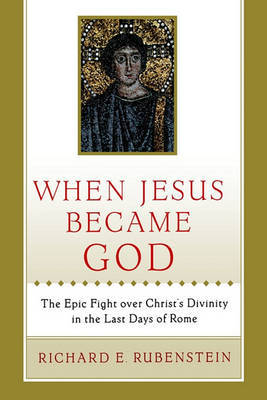
The Day Jesus Became God: How Constantine's church-council vote, 300+ years after the birth of Christ, changed the legacy of Jesus.
|
|
Roman Emperor Constantine, one of the great despots and butchers of history, murdered his own relatives as rivals; as such, it was safer to be his fatted calf than his son; further, in unparalleled cynicism, Constantine delayed his own baptism until his deathbed. Why the delay? An efficient potentate must engage atrocity, right to the end, for the maintenance of the realm, so why not play one’s “get out of jail free card” in the bonus round? Taken in by his own legal-fictions, he believed his own propaganda that bloody hands might be cleansed one minute before midnight, allowing him to skate lily-white, on a technicality, to endless reward and bliss. Meanwhile, Constantine's efforts to solidify power-and-control over the rioting masses caused him to support, and railroad to implementation, a raft of fear-and-guilt “holy teachings”, playing on the universal fear of death, designed for psychological warfare - all of which, today, Christendom piously promotes as infallible and heaven-ordained. But none of this royal chicanery, of course, touched upon the real teachings of Jesus. Honoring Constantine's doctrines-as-dissimulation would be like enshrining, as eternal truth, the oppressive Third Reich policies of gangster Adolf Hitler.
|
|
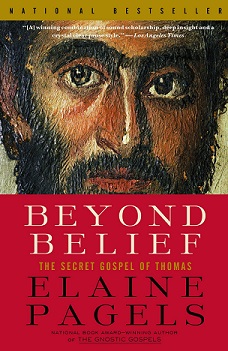
The Gospel Of John was written as polemic against the Gospel Of Thomas. The ‘John Christians’ were threatened by the teachings of the ‘Thomas Christians’ and attempted to marginalize, and stamp out, this earliest view of the nature and mission of Jesus of Nazareth.
The Gospel Of John says that the risen Jesus appeared to ten apostles only and commissioned only these to preach to the nations. But this directly contradicts the gospels of Mathew and Luke who say that “the eleven” were sent to evangelize.
The Gospel Of John says that Thomas was absent when the risen Jesus commissioned the disciples to preach to the world. John is saying that Thomas is not a real apostle. This directly contradicts the gospels of Mathew and Luke.
The Gospel Of Luke says that, when the risen Jesus appeared to the disciples, all of them, “the eleven,” disbelieved that he was really alive, but John directly contradicts this statement and says that “doubting Thomas” -- a phrase and concept John invented – was the only one to lack faith.
The gospels of Mathew, Mark, and Luke say that Jesus is man, but John directly contradicts this assertion by saying he was God.
|
'What is belief? - a state, not an act, of the mind.'
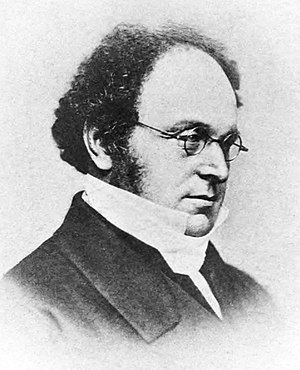
Augustus De Morgan (1806-1871)
|
British mathematician, with contributions to logic, set theory, probability theory, computer science, and numerous other fields; founder, London Mathematical Society (1865)
|
'It is not in the power of anyone to alter his state [of mind] by will. [There is] a tendency to suppose that profession [of mental position] might be taken for belief; the dishonest wanted only profession.'
The Gospel Of John commands belief; without which, it says, one is “damned already.” But there is no such thing as authentic belief led by will power. Human beings are constitutionally unable, lack the ability, to offer credulity on demand, even if they wish to do so and try very hard. Belief arises naturally, from the evidence, or not at all, even in spite of settled opinion.
And the fact that John suggests otherwise - indeed, commands - offers clear signal, to the objective reviewer, that this writing must be counted as fraudulent, an effort to engender fear in order to gain followers - a scheme of "the dishonest," warned De Morgan - and could never represent the mind of the real Jesus.
READ MORE
|
The Bible itself differentiates between the written scripture and the word of God within.
The apostle John said that an "anointing" of the Spirit, which "lives in us," will teach us personally and directly, with no external teacher required.
Jesus promised us the Spirit, guiding into all truth; but, it's often taught, the Bible will do this.
Paul set aside the teachings of scripture and proclaimed his new vision with "we know"! But how did he "know"?
|
Big Religion became the most powerful institution in the Western world by manipulating the fear of death, thereby controlling whole continents and civilizations
Dr. Bernardo Kastrup, PhD philosophy, PhD computer science, interviewed by Beshara Magazine:
“[Scientific] materialism didn’t become mainstream without reason. One of its biggest advantages is that in one fell swoop it eliminated the biggest fear humanity has had throughout its history, which is: what are we going to experience after we die? In Christian terms, are we going to go to hell? This fear has dominated human life to the point that the Church could control whole continents and civilizations and became the most powerful institution in the Western world. It is this fear that makes us feel guilty, which imbues us with anxiety and a sense of responsibility for what we do. But if we don’t believe in anything beyond material existence, we don’t need to worry.”
|
The Scribes and the Pharisees would cite scripture and ancient rabbis. Jesus, however, disregarding external authorities, countered with, "But I say to you..."
Paul would legislate on social issues, albeit, without scriptural backing. His defense? - "I think I have the Spirit of God."
The apostle Paul was mistaken concerning the issue of Jesus' return.
The gospel of Matthew is obviously wrong when it claims that Jesus would return in just a few years.
Paul changed his mind about what happens to us when we die. Paul later rejected his own earlier teaching about "waiting for the seventh trump" and "waiting in the grave until Jesus returns".
The apostles Peter and James did not think that Paul and his writings were divinely inspired and infallible - anything but.
Paul regretted some of the things he wrote in his letters. He did not write with a pompous sense of creating infallible scripture.
|
each gets a chance to say something on how God personally offered a lesson
|
“So here’s what I want you to do. When you gather for worship, each one of you be prepared with something that will be useful for all: Sing a hymn, teach a lesson, tell a story, lead a prayer, provide an insight… Take your turn, no one person taking over. Then each speaker gets a chance to say something special from God, and you will all learn from each other.”
the apostle Paul, I Corinthians 14:26-33, The Message translation
|
"A universal theology is impossible," says the Course In Miracles, "but a universal experience is not only possible but necessary." Paul’s small-group house-churches brought this principle to life in a practical way.
Each person was encouraged to share with the group how she or he had received an insight or lesson-for-living from God. Memorizing or quoting scripture was not emphasized, as the resultant numerous interpretations would only divide the group and then the world into thousands of sects and denominations; instead, Paul instructed,
“Tell us how God taught you personally, even in a small way, this past week. Maybe just a glimpse or brief flash of light. When you searched your own mind, when you meditated and communed with your own soul, what did you see, what were you given from God?”
God has no favorite kids but impartially teaches all, individually, who are willing to learn. God does not offer knowledge with a closed-shop, command-style, holier-than-thou, top-down pedagogy. The letters of John, as well, declare that God, via the spirit, will personally teach us about all the big issues of life (I John 2:27). This is the real "word of God," delivered to each human heart and mind, opened to receive it.
There can be no societal division or separation when religion is approached with this non-hierarchical, non-dogmatic, individual-centered mode of teaching but, instead, a “universal experience” based upon each person’s account of God’s private tutoring.
| William Ralph Inge, (1860-1954), Dean of St. Paul's Cathedral, London: "On all questions about religion there is the most distressing divergency. But the saints do not contradict one another. They all tell the same story. They claim to have had glimpses of the land that is very far off." |
Editor's note: Paul’s decentralized formulation of religious instruction reflects not only a respect for the dignity of each individual but a Gnostic perspective.
A pastor friend of mine, a good man, when he read the above item concerning Paul’s house-churches, commented with sincerity: “But isn’t there a danger in following one’s own ‘revelation’? How can we know if these messages are from God?” I responded, “Yes, there is a danger. For this to work as it should, one must be very honest with oneself, and not veer into illusion. The dysfunctional ego loves to wear a mask of piety and it will attempt to deceive with thoughts of pride and self-promotion.”
All this acknowledged, let us explore the alternative. The caution voiced by the pastor, in various forms, has been codified as official position in the Church at large: “The people are sheep. They will go astray if there is no representative of God to lead them. Thinking for oneself is the playground of the Devil (if there were such a being). Much better for all to adhere to time-honored doctrine; this way, we all speak the same thing, which promotes harmony and unity in the Church.”
In other words, that “alternative” is to allow someone else to do your thinking for you. Surrender your brains when you walk through the church door. Keep your opinions to yourself; better yet, stifle them, and believe.” The very word heresy means “opinion.”
The so-called “Church Fathers,” writing in the few hundreds of years after the time of Christ, often attacked the Gnostics, authors of “The Gospel Of Thomas” and many other documents (some of which pre-date the canonicals). In the missives of “the Fathers” the Gnostics were lampooned for allowing followers of Jesus to offer their own “revelations” at church meetings, pretty much exactly in line with what Paul promoted in Corinthians. “They trust in their own imaginations,” said the Fathers, “are all over the place with various crackpot ideas and concepts. Who can keep track of them all? This will end badly with a great many splinter-groups representing a hodge-podge of beliefs.”
Strangely, history unfolded precisely opposite to what “the Fathers” predicted. The Gnostics, allowing each to speak, with their many interpretations of how God works in the world, enjoyed relative peace and harmony – while “the Fathers,” the forerunners of Big Religion, would witness, over time, their efforts at strict mind-control devolving into tens of thousands of factions which have divided Christendom to this day, and continue to do.
For more discussion see the article on “The Gospel Of Thomas.”
READ MORE
|
The gospel writers edited - even censored - each other and did not view each other's writings as "holy."
The four gospels were written long after the reported events, by non-eyewitnesses, for whom their story constituted hearsay evidence.
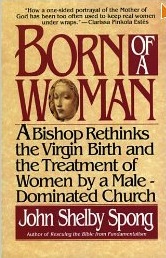
The "virgin birth" teaching not only was added to church doctrine many centuries after the time of Jesus, but its entire basis of validity in Matthew rests upon one single mistranslated Hebrew word - just one skewed word - from Isaiah, which, in all of the Old Testament, is never, ever translated as "virgin."
Edward Gibbon, The Rise And Fall Of The Roman Empire: Miraculous events surrounding the death of Jesus were so spectacular that it might have seemed that the world was ending; however, not one contemporary secular writer comments on this purported chaos which would have rocked all of society.
There is reason to assert that the gospel writers had little first-hand knowledge of the Jerusalem culture; more evidence of the writers' lack of authority to produce "holy" writ.
When Matthew quotes the Old Testament, he mistakenly cites Jeremiah for Zechariah.
The apostle Paul liberally borrows words, phrases, concepts, from the pagan-wise of his day. If Paul's words are "infallible," then, so are the pagan original sources.
Similar to Paul’s referencing of secular literature, sections of the biblical book of Proverbs seem to very closely allude to Egyptian wisdom sayings; suggesting, if Proverbs is “inspired,” then why not the Egyptian writings?
Matthew, a "nightmare for literalists."
Biblical documents were edited by church politicians, a re-writing of history, an explosion of fake news, to support a particular church view and political agenda.
Mark 16:9-20: “This ending is not found in our earliest and most reliable Greek copies of Mark… Clement of Alexandria and Origen show no knowledge of the existence of these verses… Eusebius and Jerome attest that the passage was absent from almost all Greek copies of Mark known to them… The language and style of the Greek is clearly not Markan… it is pretty evident that what the forger did was take sections of the endings of Matthew, Luke and John, and simply create a ‘proper’ ending.”
|
one does not die in a procession, one dies alone
From “The Vital Message” (1919) by the great afterlife researcher, Sir Arthur Conan Doyle, of "Sherlock" fame:
“But the commonest failing, the one which fills the spiritual hospitals of the other world, and is a temporary bar to the normal happiness of the after-life, is the sin of Tomlinson in Kipling's poem, the commonest of all sins in respectable British circles, the sin of conventionality, of want of conscious effort and development, of a sluggish spirituality...
fatted over
"fatted over by a complacent mind and by the comforts of life. It is the man who is satisfied, the man who refers his salvation to some church or higher power without steady travail of his own soul, who is in deadly danger. All churches … are noxious the instant that they allow him to think that by any form of ceremony, or by any fashion of creed, he obtains the least advantage over his neighbour, or can in any way dispense with that personal effort which is the only road to the higher places….
one dies alone
"One can get through this life very comfortably following without question in some procession with a venerable leader. But one does not die in a procession. One dies alone. And it is then that one has alone to accept the level gained by the work of [one's] life. And what is the punishment of the undeveloped soul? It is that it should be placed where it will develop, and sorrow would seem always to be the forcing ground of souls.”
|
Many biblical documents, among early Christians, were widely regarded as forgeries and fakes, not inerrant, and generally dismissed as political propaganda.
New Testament scholar Dr. Elaine Pagels of Harvard states that the phrase, "except for marital unfaithfulness," was added much later to the Matthew text, an attempt by manipulating politician-churchmen to water down the impact of something they didn't understand - what they considered to be Jesus' too-harsh teaching.
The Old Testament law is very clear: Not only is tithing commanded, but three tithes are mandated; plus special offerings. For literalists, those who believe that every written "word of God" is infallible and pure – are you paying all this?
falsifying a resume
It is a common tactic of the unscrupulous to redefine terns, to rewrite and refashion history, to support a private agenda of power and control. (See much discussion of this ploy on the "clear thinking" page.) When the Church Councils decided that Jesus needed to become a god, it was necessary to fabricate a fanciful and impressive origin for him.
Gerald Sigal: Daniel 9
Gerald Sigal: Isaiah 53
Gerald Sigal: Isaiah 9
Gerald Sigal: Matthew 2
Gerald Sigal: Zechariah 9
Jim Lippard
James Sill
Does God require us to observe a seventh-day Sabbath?
Did Paul really say that women should be silent in church? Scholars argue that the apostle’s seeming declaration of 1 Corinthians 14:34-35 is an interpolation, a later addition, as it directly contradicts Paul’s earlier statement, 1 Corinthians 11:5, which allows women to prophesy and pray in church.
In some cases, the Bible directly contradicts the scientific evidence for the afterlife, attested to by Nobel laureates.

|
The Dazzling Darkness is a concept representing a frame of mind untrammeled by the dysfunctional ego. Therein, freed from base-alloy lower-nature inclinations, one might apprehend not only the identity of one’s true mate but also a realization of the living presence of God in one’s life. READ MORE
|

Some Church Fathers taught that biblical documents should be understood allegorically, not literally; that is, not infallibly.
The mashal principle, embedded in the substructure of the Hebrew text, representing the "parable" teaching-style of Jesus, virtually shouts to us, "whatever you do, accept no literal surface meaning as primary; if you do, you will automatically be wrong."
The "other Bible" - the Nag Hammadi scrolls
The "God" of the infallible Bible commands the troops, "Kill everyone - except for the captured middle-school girls. You can keep them aside as your sex-object play-things."
The "holy Ten Commandments," in large measure, protect the property rights of patriarchal tribal-chieftains.
David's "Babylonian" Psalms
The meaning of the Hebrew word for 'bless'
The apostle Paul: 'keep your dealings with the world as light as possible'
Paul and the 'present distress.'
Galatians: the first document of the New Testament
Church father Gaius of Rome argued that "the number of the prophets and apostles is now complete," the visions and revelations ended with the close of the apostolic age. Does God speak only to an elite? Does God have favorite kids in his family?
Difficulties translating text with no vowels or punctuation
Jeremiah's 70-year prophecy is extended to 490 years due to ambiguity related to no vowels
Prof. Bart. D. Ehrman: Is it morally defensible to knock the brains out of little babies in retaliation for what their father-soldiers did? Does this sound like something the real God would have condoned and inspired as "holy writ"?
|

how can he blame you for being human when he made you human
|
episode 4, season 2, “The Driver” (1995)
Debra (weeping): I can't do it right all the time.
Monica: I know that. God knows that. How can he blame you for being human when he made you human?
|
 |
Editor’s note: Absolutely. Monica nails the central issue. The vaunted “church fathers” would have done better asking themselves the simple question, How can God blame you for being human when he made you human? Our task today is to separate ourselves from the ancient “holy doctrines,” the respected lies about God, which purport otherwise.
READ MORE
|
Prof. Bart. D. Ehrman: Why does Matthew say that Jesus was born of a virgin? He does so because he’s very keen to show that Jesus’ life was a fulfillment of Old Testament prophecy. As such, he quotes Isaiah. However, Isaiah didn’t actually speak of a virgin birth.
Prof. Bart D. Ehrman: Is the Roman state a force for good or evil?
Prof. Bart. D. Ehrman: The early manuscripts have Mark asserting that Isaiah said such-and-such but the passage in fact comes from Exodus. Later it appears that a scribe took it upon himself to edit away this error.
Prof. Bart D. Ehrman: When Mary found the boy Jesus in the Temple, she exclaimed “Your father and I were worried,” but, in some of the later manuscripts, this is changed to “we” to support an idea that Jesus had no mortal father.
Prof. Bart D. Ehrman: Later scribes changed the text to make Jesus all-knowing and privy to the knowledge of the end-time’s occurrence.
Prof. Bart D. Ehrman: The story of the woman taken in adultery, John chapters seven and eight, was not part of the original text but added centuries later.
Prof. Bart D. Ehrman: The last twelve verses of Mark’s gospel were added centuries after the fact. This section is not in the earliest and best manuscripts.
Prof. Bart D. Ehrman: Why does Jesus say that Abiathar was high priest in Mark 2:26 when 1 Samuel 21 states that it was Ahimelech?
Prof. Bart D. Ehrman: Changing just one Greek letter, or even part of a single letter, can not only alter the meaning of a text but undermine a major traditional church doctrine.
Prof. Bart D. Ehrman: When did Jesus die? Was it on the Passover or the day before Passover? The gospels offer differing accounts.
Prof. Bart D. Ehrman: Matthew’s gospel was written to convince Jewish readers that Jesus is the fulfillment of ancient prophecies. It attempts to do so, right at the start of the book, by offering a timetable of genealogies. In this, Matthew tries to show that every 14 generations of Israel’s history something very significant happened. However, the groups of 14 do not unfold easily, and Matthew produces a skewed timeline to make the “14” work.
Prof. Bart D. Ehrman: There is only one section of the New Testament that speaks to the traditional, orthodox concept of the Trinity. However, this reference is not part of any Greek manuscript until the 15th century. This is a purposeful addition by a copyist who believed such ought to be in text.
|
Why does the sky-god always need a little more money?
Comedian George Carlin offered somewhat of a unique and sharp angle on the hypocrisy of Big Religion.

Carlin’s humor was raw – so be warned of that. However, his perspective, in broad measure, was correct. The fairy-tale straw-god of orthodoxy is a complete fabrication, and has little confluence with the real God.
To those who would object to Carlin’s apparent atheism, I will put forward that the afterlife reports inform us that the sincere atheist will enter a good place over there along with whole-hearted believers. The scheming and duplicitous religious clergy, however, will have some overdue homework to hand in before things go well for them.

We’re reminded, too, of Jesus’ comment that the Scribes and Pharisees, the religious elite, would not enter the kingdom before the putative sinners of the day.
See George Carlin’s stand-up routine
|
Prof. Bart D. Ehrman: In Matthew, Mark, and Luke, we find a Jesus who teaches little about himself and repeatedly refuses to perform miracles as evidence of his status and mission. The focus of his teaching is God and the kingdom which God is to bring in the future. In John, however, the focus of Jesus’ teaching is himself and the eternal life he brings in the here and now; further, his miracles are called “signs” and are performed explicitly to provide proof of who he is. While these two views could be profitably harmonized, this is more difficult in John as its writer is frequently caught in lies and political dirty tricks.
Prof. Bart D. Ehrman: According to Luke, when Joseph and Mary left Bethlehem they journeyed to Nazareth, but Matthew states that from Bethlehem they fled to Egypt.
Prof. Bart D. Ehrman: When did Paul go to Jerusalem to meet the other apostles? Acts and Galatians offer specific but antithetical answers.
Prof. Bart. D. Ehrman: The issue of forgery or changing a text to suit private agenda is addressed as a widespread problem in many ancient-world documents, with the authors, even in the Bible, offering curses to those who would dare modify the original writing. This did nothing to stop the alterations.
Prof. Bart. D. Ehrman: A series of copied manuscripts, over centuries, reveals that a passage in the book of Hebrews was altered, back and forth, among successive copyists; in fact, these scribes made marginal notes to each other, condemning predecessors for their fraudulent or incompetent copying skills.
Prof. Bart D. Ehrman: Scribes, over the centuries, and even modern translators, have altered best-attested texts to indicate a subservience and lower-class for women. Why haven't we heard of Ms. Junia? - not only an apostle but a "foremost" one.
Prof. Bart D. Ehrman: One of the reasons Paul wrote I Corinthians was to quash a heresy which asserted that Christians were already enjoying a resurrected existence with Christ right now, but in Ephesians and Colossians seemingly Paul now explicitly supports the idea that believers currently live a resurrected life with Christ. These latter two writings are forged documents.
Prof. Bart D. Ehrman: In I Corinthians 7 Paul argues that those who are single are better positioned to maintain their relationship with God, and should not marry, given the dire state of the world; however, in Timothy and Titus we find a Paul who now insists that leading Christians, the elders, ought to be married. These latter writings, the "Pastorals," are forged documents from later in the second century.
Prof. Bart D. Ehrman: II Timothy 3:16 asserts that “all scripture is inspired by God (literally, “God-breathed”). If this is true, then how could there be forged documents in the canon or mistakes of any kind? But this dogmatic pronouncement of inerrancy, itself, comes to us in a forged document and, like the Wizard of Oz who shouted “Don’t look behind that curtain!”, issues as self-serving Orwellian propaganda and fake-news effort.
Prof. Bart D. Ehrman: John’s account of the invalid by the pool of Bethzatha was altered by copyists in later manuscripts to speak of an angel disturbing the water. The earlier text does not offer a reason for the troubled waters.
Professor Ehrman: “We could go on nearly forever talking about specific places in which the texts of the New Testament came to be changed, either accidentally or intentionally… the examples are not just in the hundreds but in the thousands.”
Prof. Bart. D. Ehrman: Beware of “fancy exegetical footwork” on the part of literalists for whom biblical scholarship becomes explaining why best-attested words of the Bible do not mean what they say. Is this the "infallible inspiration" of God?
Abraham is called the 'father of the faithful,' but we would do well to avoid his example.
The Bible says that a dad has the right to sell his daughter into slavery.
The Bible says that a disrespectful and rebellious son should be killed.
The Bible says that if you do any work on the sabbath you are to be killed.
The Bible says that the drunkard, one who drinks too much, should be killed.
The Bible says that touching the hide of a pig will make one unclean, requiring the offender to be removed from society for cleansing. As some have pointed out, this would result in all football players being put away.
The Bible says that a young woman who loses her virginity should be killed.
The Bible says that those of the Gay community should be killed.
The Bible says that the glutton, one who eats too much, should be killed.
|
New archeological findings offer compelling evidence of the existence of biblical personages – Joseph in Egypt, Jacob, Moses – also the historicity of the Exodus, the plunder of Egypt, and the fall of Jericho.
What might be the implication of these authentications of biblically-referenced events and personalities?
READ MORE
|
Editor's Essay: Jesus' parable of the mustard seed and the kingdom of God: smallest beginnings to eventually fill the cosmos
The apostle Paul said that all law-systems, effectively, all religions, represent humankind's spiritual infancy and immaturity, something to grow out of.
Beauty: All great theories of science have in common a profound “elegance or simplicity of assumption,” Roger Penrose. This principle relates directly to our discussion of "Bible."
It seems that some divine messages were dropped from heaven; such as, the Gospel According To Paul.
The Great Psychologists Speak: In Freud's "transference" we see the needy inner-child of a grown person, distorting the world to relieve helplessness and fears, seeing things as he wishes them to be for his own safety.
The peril of infallibility claims, according to Einstein: “No amount of experimentation can ever prove me right; a single experiment can prove me wrong." The universal statement “all swans are white” cannot be confirmed, even with a thousand white swans, but a single black swan will falsify it.
"If the Bible is filled with errors, why do you quote it?"
What is the Bible, really?
Every people, nation, and culture has been given, quite directly, the word of God: The "central mountain" of Black Elk.
Every word of God is pure. It is the word of God living in us.
Spirit Guides on the other side warn against misusing the Bible as final word of God
The following is channeled information from the other side via the mediumship of Robert James Lees, Through The Mists (1898): A new-arrival in Summerland is instructed concerning how God teaches everyone via the Spirit of truth, the “whispering still small voice” within each human being: Do not say that God spoke only “in the days of the oracle… Not so! Say rather that [communication from God] has ceased because of the unnatural and erroneous teachings [of the worldly rogue Church] which have gained the ascendancy… [The authentic, spiritual] Church in every age should … demonstrate this truth [of Spirit guidance]… [the Bible is not a] finished and perfect revelation [but only] containing the Word of God to a specific people, designed for guidance under certain conditions, and but a fragment of … revelation... Jesus wrote no law which was handed to His disciples with [no] command to keep, neither did He commission anyone else to do so after His departure. His injunction was to preach, and that only as the Spirit should give them utterance - that voice of the Spirit being the continuance of revelation until time should cease, leading His followers into all mysteries… the tradition and authority of the [worldly rogue] Church has usurped the living word and lively oracles of God, with the unavoidable result of error and confusion… [as] self-interested [religious] teachers promulgating error, by concealing certain aspects of truth for base and unworthy motives [In other words, the worldly rogue Church claims that the day of revelation ended with the apostles, but this position is taken only because it effectively offers the Church great power as the only arbiter of the divine will]… God has never left [the world] without a witness [of divine revelation]; faithful watchers in the temple [that is, the true spiritual Church] have always kept the lamp of revelation burning, and the oracle alive… the salt of the earth [true followers of Christ] who maintain the standard and show the possibilities from which the [worldly] Church has degenerated - these only emphasize the truth I am declaring to you… They are men and women who think for themselves - who, catching a glimpse of celestial visions, do not turn away and consult the opinion of any teacher as to the legitimacy or otherwise of listening to the voice which calls to them from the cloud of glory, but following the dictates of their own souls they answer ‘Speak, Lord, for thy servant heareth,’ and thus are drawn into that communion of saints which needs no mediator, seeks the aid of no priest, and is rewarded by a vision of the true shekinah from which the rended veil of doubt is torn away, bringing them into the hallowed presence of the Lord… [These the world vilifies as Satanic.] The faith of the [worldly rogue] Church is in these traditions of men, not in the living, ever-speaking God, hence it is no wonder that the days of miracles are past, and men laugh at the idea [of those living by the Spirit of truth]."
the 'boomer generation' is offered unexpected compliment by spirit-guide Brother John of Glastonbury
On the Summerland page, and elsewhere, I quote Brother John of Glastonbury of “the sane 500.” On the other side for many hundreds of years, he often had something good to say.
He is no longer of the Church; none of the “sane” over there claim membership anymore.
On September 12, 1968 he offered comment, via Leslie Flint, on the troubled situation in the world. And how well I remember that tumultuous time. Bobby Kennedy and Dr. King had very recently been killed. Cities were burning. I would soon graduate from high school and was anxiously waiting to leave the farm for university.
The great turmoil in the world, Brother John suggested, was tempered by what he saw as encouraging signs by the younger generation. They were far more likely than their elders, he thought, to “seek for enlightenment,” to “desire for knowledge.” They were “rebelling against much that had been accepted, and were not as easily taken in as were past generations.” They “wanted to analyze, to change, wanted to know truths, and were protesting against evil,” as they saw it, and were not afraid to do so. They had “lost faith in the Church,” and all of their thinking and questioning, he said, was “the beginning of the end for the Church,” though its departure, a long good-bye, would linger yet for some protracted time.
He then offered a panoramic perspective as only one, many hundreds of years old, might do. The “young,” the Boomer-generation, with all of their dissension and questioning, John asserted, created more hope for the world “than at any time in history.” That’s quite a statement.
|
Mad magazine’s meteoric rise during the 1960s, its iconic irreverence for the conventional, reflected the Boomer’s growing distaste for disingenuous authority.
|
|
footnote to Brother John's comment, 'the beginning of the end for the Church'
Buffalo attorney and afterlife researcher Edward C. Randall was introduced on the “direct-voice medium” and “Summerland: 1-minute” pages. For 22 years, in the early 1900s, he worked with the aged and frail Emily French, by whose mediumistic agency thousands of voices from the other side were received. You’ll want to read about this.
However, in reference to Brother John’s view concerning the Church’s loss of influence in our time, Randall offered the following assessment in his book “Frontiers Of The Afterlife”:
Randall: “There was opposition to this work in spirit spheres [by evil spirit persons] in the beginning, just as it is opposed now in this world. Some churches exist as institutions in the afterlife, and are just as jealous of their domination there as here."
Editor’s note: Yes, these churches exist over there, but not in the ‘better neighborhoods,’ and only until their followers realize that they’ve been jerked and snookered, royally had. This was my father’s new clarity, as he, with regret and dismay, communicated with me from the afterlife.
Randall: “In our earliest work, these [evil spirit-person] opponents often tried to prevent speech by interrupting and disorganizing the circle, fearing that the truth might cause loss of temporal as well as spiritual power both here and there.
“Great efforts were made by the spirit-group [on the other side, working with Randall and French] and ourselves to maintain conditions and keep them out.
an angry RCC priest grabbed the secretary's papers and threw them across the room
Randall: “I recall one evening, when my stenographer was taking a lecture in shorthand [from a speaker on the other side], that a Catholic priest in the spirit world gained admittance. Such was his strength that he suddenly wrenched the stenographic book from the hands of the stenographer and threw it with great violence against the wall of the room. Our group finally forced him out and, as he was leaving, I heard him say, What can one man do among so many millions?"
In other words, this militant and despotic priest, an evil-spirit, afraid of any diminishment of power over others, haughtily smirked, “For millennia, we have deceived and psychologically enslaved, through the fear of death, vast millions with 'infallible' books, 'infallible' Dear Leaders, magic handsigns and magic words, and what is one man, Randall, on the Earth, going to do about it?”
However, while it may be a 'long good-bye,' the days of dominion for Dear Mother Cult are numbered now. This contemptuous and perverse RCC spirit-person was not unlike the hostile clergyman who, when I was 17, attempted to ridicule and intimidate me.
Editor’s note: On my 71st birthday -- that's 71 not 17 -- I scheduled a reading with psychic-medium Sue Barnes. She said several of my relatives were on hand to offer greetings. But then Sue relayed a message suggesting that some of them “were beginning to understand why I had left the RCC” almost 55 years ago, that there were many problems now evident in the church. I thought this to be an interesting comment. Reading between the lines, I saw that many – not all -- of my closer relatives lived in a “RCC ghetto,” wherein they still adhered to the old doctrines and rituals. However, it’s clear to me that, with my cousin John’s – the former priest – apostasy, and now with my own straying from the fold, some are finally beginning to awaken to broader planes of thought. If this is all you know, if you only hear what they want you to hear, and you’ve never questioned the legitimacy of the status quo, it might take a while for the faux-authority of Dear Mother Cult to lose its luster. I could tell that these relatives still saw me as that long-ago teen boy, “going through a rebellious phase,” as they saw it, “but he’ll return in old age," they comforted themselves. I believe that, when I enter their world, and they speak with me, they’ll realize I’m not quite the agent or pawn of Satan they had presumed, and then many will be “shot from a cannon” out of their “prison for the mind.” A quick final note on Sue’s reading: two relatives, religious bigots, came through who had caused me much damage during their Earth time. They wanted to be friendly but weren’t repentant, and tried to make excuses for why they’d acted as they did, why they weren’t really to blame, and why it was still my fault after all. It was plain to me they hadn’t learned a thing yet. As we're instructed by missionary Spirit Guides who serve in the Dark Realms, it’s no good even talking to people while they’re in this disingenuous “face saving” period. It just makes them worse, as they believe they’re fooling you.
|
more than drinking the koolaid
The long reach of cultism encompasses much more than crackpot churches. The root idea of cult offers the sense of "cut." This core concept of "cut" leads us to images of refinement and refashioning and, by extension, development, control, pattern, order, and system.
Cultism as systemization finds a ready home in religion and philosophy which seek to regulate and redistill the patterning and ordering of ideas. However, in a larger sense, the spirit of cultism extends to every facet of society. We find it scheming and sedulously at work in politics, academia, family, corporations, entertainment, science, artistry – anywhere power might be gained by capturing credulous and fear-based minds.
See the “cultism” page for a full discussion.

|
|
|

"...like da Bible always says - ya
ain't gonna get a second chance"
-
-
- Editor's note: Mickey's line from Rocky, stated quite "sinceriously," is funny because it highlights a misconception about the Bible. But then, there's a lotta that going around.
|
|
you can have it all laid out in front of you, but it won't make you think

Concert for George
Royal Albert Hall
November 29, 2002
Horse To Water
|
you can take a horse to the water but you can't make him drink, oh no, oh no, oh no, a friend of mine in so much misery, some people sail through life, he is struggling, I said, "hey man, let's go out and get some wisdom," first he turned on me, then turned off his nervous system, you can take a horse to the water but you can't make him drink, oh no, oh no, oh no, you can have it all laid out in front of you, but it won't make you think, oh no, oh no, oh no
|

|
listen to Sam Brown’s sensational version of “Horse to Water” at the Concert for George
|
|
|














